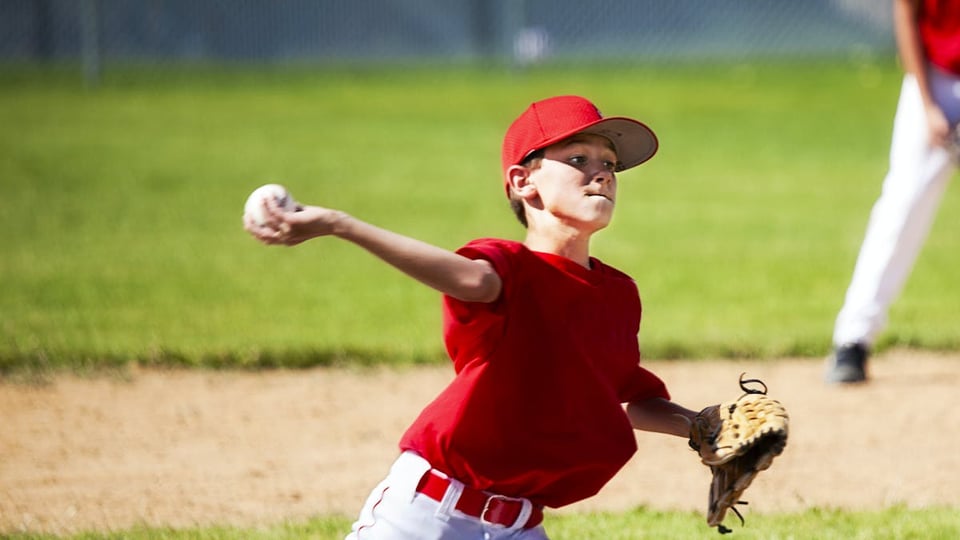Treating the Shoulder in the Adolescent Athlete
Paul Frizelle, PT, DPT, MS, OCS, MTC, CSCS, PES, CES
Includes all course content in digital format
Prerequisites Required
Description
Young athletes sustain a significant amount of injuries participating in sports. The unique nature of the adolescent musculoskeletal system requires developing an understanding of the physical/physiological differences between adolescent and adult athletes. Effective management of these athletes in the rehabilitation setting demands the practitioner understands both how and why these athletes need to be treated differently than adults. This course will help the clinician to develop an understanding of the adolescent musculoskeletal system. It will also address commonly encountered shoulder injuries in the adolescent athlete and how to best manage these injuries to help the athlete successfully return to their sport.
Highlights
- Immediately increase your understanding of the adolescent musculoskeletal system and how it differs from the adult athlete
- Practical strategies to treat common shoulder injuries in the young athlete
Learning Objectives
- List the most unique aspects of the adolescent musculoskeletal system that is not encountered in adults.
- Name 3 commonly encountered shoulder injuries in the young athlete.
- Explain the impact of childhood sports injuries on daily tasks and development through adolescence and adulthood.
Course Content
| Treating the Shoulder in the Adolescent Athlete | SCORM Package | ||
| Next Steps | Module |
- Unique Anatomical Considerations in the Young Athlete
- Youth sport participation rates and injury rates, need for understanding trends of the adolescent athlete
- Unique skeletal characteristics of the young/adolescent athlete
- Changes in muscle strength/flexibility through growth phases
- Reasons for increased injury risk in the young athlete,training volume, intensity, frequency, biomechanics of sportmovement(s), changes in motor control system
- Shoulder Injuries in the Young Athlete
- Impact of sport-related shoulder injuries on dailyactivities and function
- How injuries in childhood can impact function daily tasks as an adult
- Little leaguer's shoulder, Proximal Humeral Epiphysitis
- Anterior instability/multi directional instability
- Shoulder impingement syndrome
- Clavicle fractures/Acromioclavicular joint sprain
- Dead arm syndrome
- Treatment considerations for other aspects of daily function at school and at home
- Rehabilitation Exercises for the Adolescent Athlete
- Exercise prescription for the adolescent athlete
- Isolation exercises for the shoulder complex
- Compound movements for the shoulder complex
- Adapting sport rehabilitation exercise strategies to task-specific dysfunctions
- Considerations for specific professions PT, OT, PTA, COTA
- Conclusion
Dr. Paul Frizelle, PT, DPT, MS, OCS, MTC, CSCS, PES, CES received his Bachelor of Science in Sports Management from the University of Tampa, a master's degree in Human Movement from AT Still University, and his Doctorate of Physical Therapy from the University of St Augustine. His training in orthopedic physical therapy is extensive and includes completing his orthopedic manual therapy residency. He has certifications in manual therapy, strength and conditioning, vestibular rehabilitation, and is recognized by the ABPTS as a board certified orthopedic clinical specialist. He has focused his area of practice in orthopedics for national and regionally based outpatient physical therapy companies as well as the sub-acute rehabilitation hospital setting. He is an adjunct faculty member for AT Still University in their master's degree Kinesiology program. In the AT Still program he has instructed courses including Functional Anatomy, Human Movement Dysfunction, and Post Rehabilitation Exercise.
Dr. Frizelle is a nationally recognized speaker in orthopedics and has instructed courses in joint arthroplasty, management of the lumbopelvic hip complex, orthopedic manual therapy, and evaluation and treatment of the lower extremity. His professional interests include exercise programming in the orthopedic management process, and the application of manual therapy in orthopedic rehabilitation.
DISCLOSURES
FINANCIAL: Paul Frizelle is compensated by Summit as an instructor.
NONFINANCIAL: Paul Frizelle has no non-financial relationships to disclose.
Click here to check accreditation for this course.